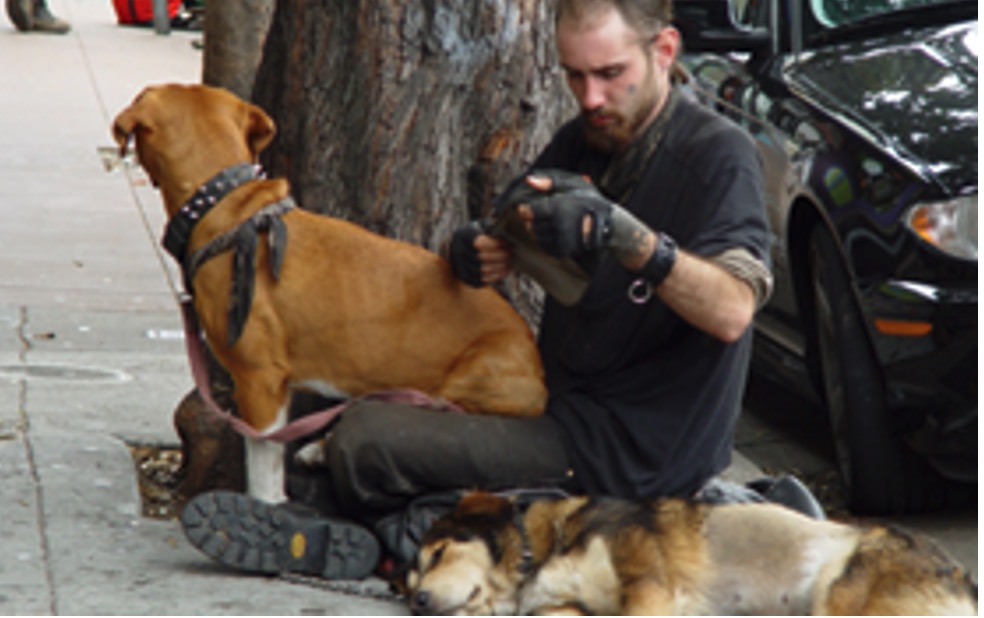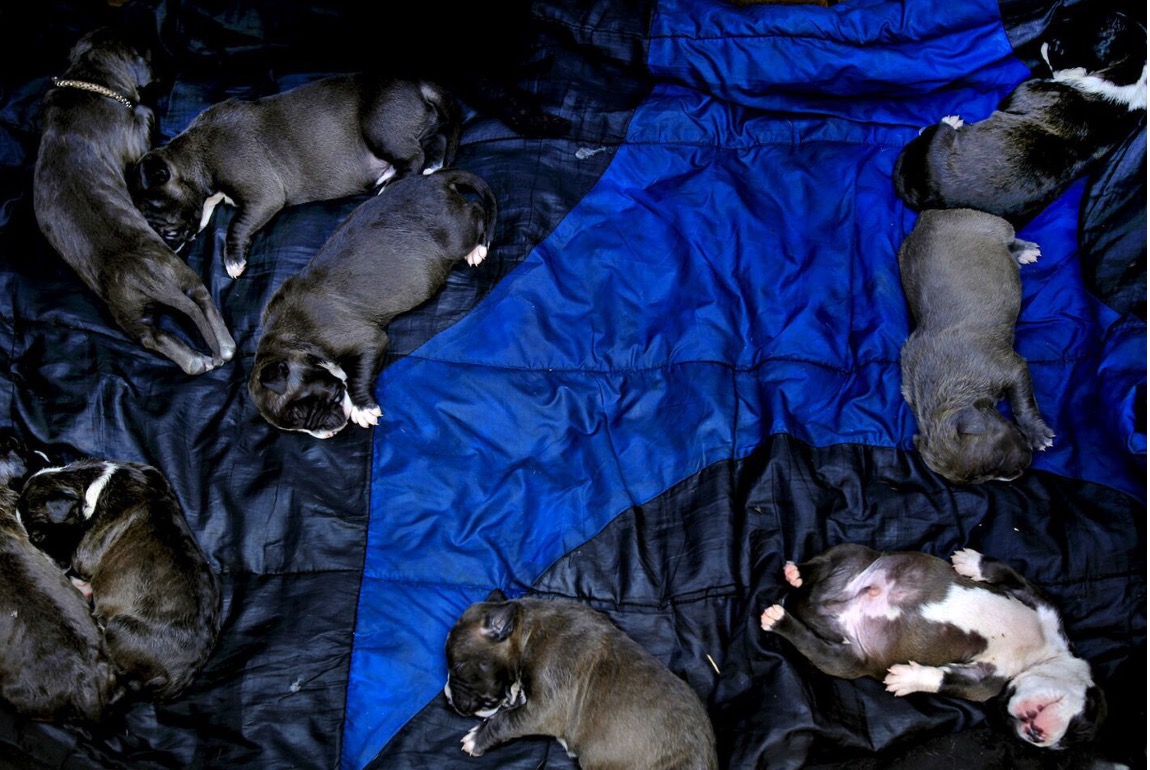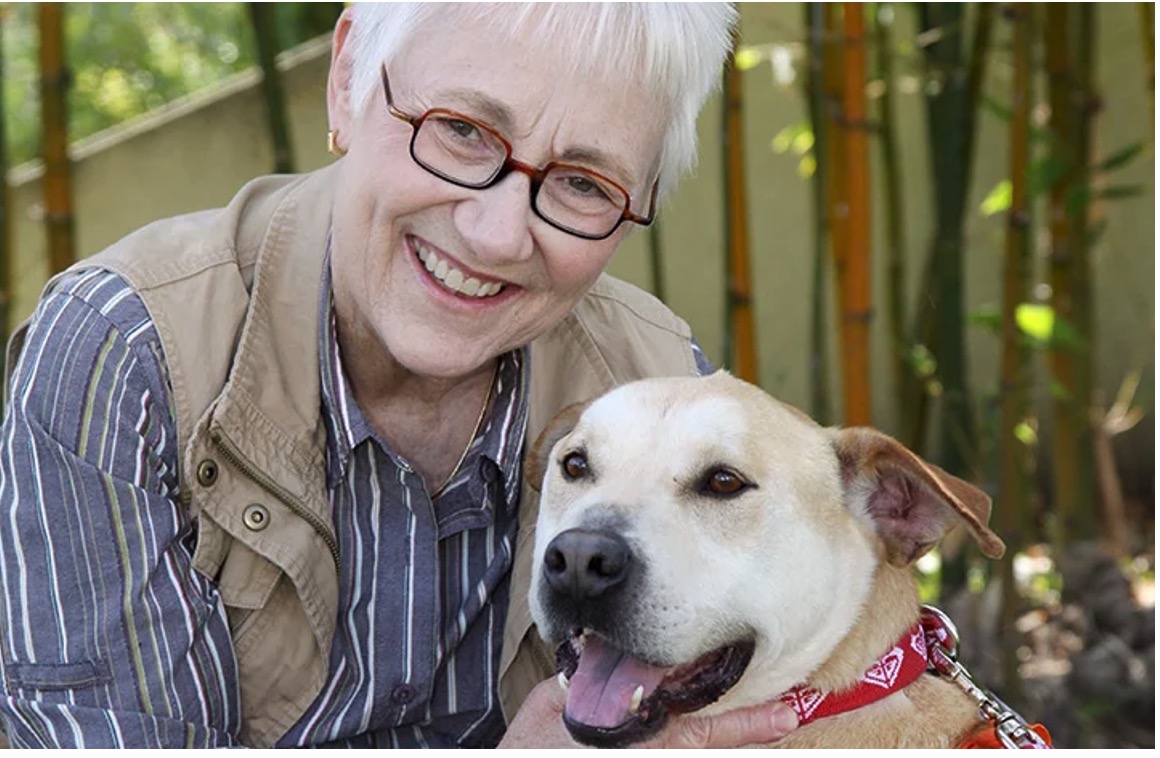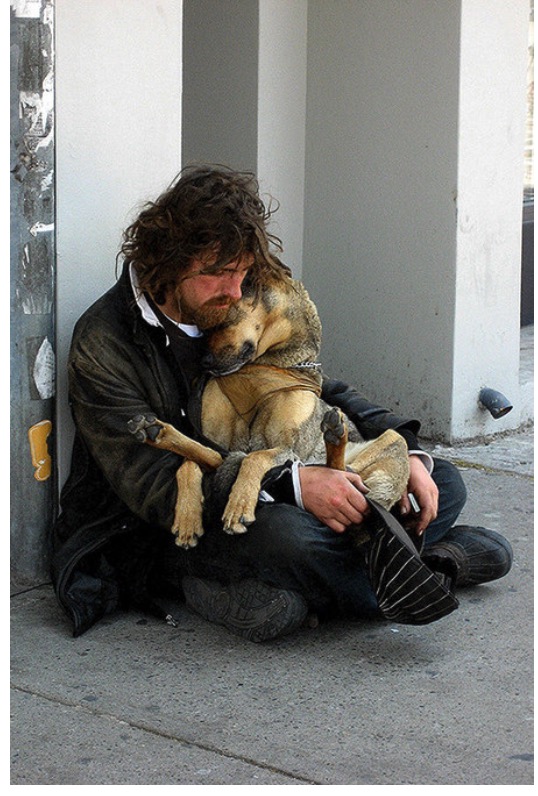Comments
ANIMAL WATCH - On August 14, 2022, a FOX-11 News report on “Disturbing Skid Row dog conditions spark online petition for change” described the opportunity to join an effort to save Skid Row’s dogs—mostly Pit Bulls—claimed by two Los Angeles-based non-profit organizations to be in horrific conditions in cages on the streets of the most crime-ridden, poverty-driven area of downtown Los Angeles, near City Hall.

Apparently these two organizations have not recently visited the L.A. Animal Services’ shelters, because the conditions (other than the background of filthy littered streets) do not appear to be notably different. The Skid Row dogs are getting fresh air, even if it is tainted with the odor of urine and feces—but that is also the case much of the time at the animal shelters, which cannot keep up with the constant stream of surplus dogs that continue to fill every cage and kennel and are crammed into any humane container that can be stashed in offices and hallways.
Although the efforts to bring attention to this problem are always needed, the timing of the media release announcing an on-line petition is odd, in that a new General Manager has just been instated—Stacee Dains, formerly from Long Beach Animal Control—and it appears the issues were not brought to her directly before the release to the media.
BREEDING AND SELLING PUPPIES ON THE STREETS IS NOT NEWS
And this is by far not a new problem in L.A., and while it is likely General Manager Dains would welcome and appreciate help that conforms with City policy and laws, those discussions are first usually held in meetings with City officials to set the groundwork and then a joint announcement is made to the public—so that it can also elicit contact information for those who hopefully will want to avail themselves of this opportunity. Otherwise, claims of exploiting a bad situation for publicity and to build a mailing list resound even in well-meaning offers.
The release dated August 14, claims that “pit bulls: are being kept in cages, being chained up or repeatedly bred to sell puppies” and asks Mayor Karen Bass and general manager of Animal Services Staycee Dains to “sit down with Animal Rescue Mission and Stand Up for Pits Foundation to discuss solutions working together.” It adds that they have offered to spay and neuter pit bulls on Skid Row. However, the homeless residents who own the dogs have refused the community’s help as they continue to sell the pups for as high as $300 each.”
Fox 11 adds that a representative stated, “Those who should be doing something about it are doing nothing.”
And, Lycia Naff, from DrivebyDoGooders.org, is quoted as saying, “We don’t want to alienate the people, but the existing laws are not being enforced by Animal Services.”
No one disagrees that the animals deserve better, and that L.A. Animal Services has not addressed this issue in terms of humaneness. However, these are “owned” animals and the City cannot just confiscate them for sterilization.
Also, these conditions have existed for years, and the timing of this public outcry—without first meeting with new GM Dains—seems more likely to potentially produce concerns about sensationalized publicity for the organizations than induce a cooperative atmosphere for setting up a plan.
Certainly, the breeding and selling of Pit Bulls on Skid Row is not new—but it is equally involved in criminal activities, especially dog fighting, and this is done spontaneously or clandestinely for the gambling opportunity.
As far as the dogs, not a lot has changed since a 1999 L.A. Times article, Half Dead and Other Dogs from Hell, by Robert A. Green, about the plight of a Pit Bull from South Central L.A. who wasn’t a good fighter but was continuously placed in pits from which he was likely not to survive, but still allowed a lot of bettors to make money—on his opponent.
The activists’ complaint that the current dogs on Skid Row in DTLA (Downtown LA) are kept in cages, without food and water, and used for breeding because some owners report getting up to $300 for a puppy is not a surprise.

That amount of money is the signal that the parent(s) are from strong bloodlines for fighting. That also means the offspring can be bred and those puppies sold for a similar amount. There aren’t very many enterprises (other than drug sales and prostitution) on the filthy streets of Skid Row that can promise that kind of profit.
Ironically, a June 28, 2017, article was just sent to me—due to the recent tragedy in Hawaii which is headlined, Homeless at Oahu Encampment are Breeding Puppies, selling them to Pet Stores. It explains that 16 puppies and five adult dogs were removed by the Humane Society and they were going back for more of the estimated 80 dogs still there. The issue was addressed only because of attacks on two men.
The Pit Bulls also provide a certain amount of protection for the owner—until the urge for drugs (or sex) takes over and the dog gets left alone long enough to be stolen.
These are not all bad people, but many live lives of “good intentions” but bad decisions.
LA Dog Bite Attorney Warns in 2018 About Dangers of Adopting Dogs to the Homeless

Former-General Manager Brenda Barnette
The only way adopters/owners/keepers can be held accountable for the health and welfare of dogs and maintaining current rabies vaccination is through the physical address provided on the dog's license application (which—for the homeless—may be a friend or relative or contact which receives their mail, etc. and knows their living location.)
It is also the way a bite victim or health official can determine the need for costly rabies treatment for a human victim in the event of an attack or bite. If the dog can be located, its current rabies vaccination can be confirmed, and/or it is quarantined for ten days to assure it does not display symptoms of the painful and deadly virus.
The homeless ‘owner’ has nothing to lose by taking a free dog to sell or a Pit Bull as a guard dog, because they have no assets and no insurance. However, if they have no address on record due to the proposed change in the LA Municipal Code, is the City exempt from responsibility for a bite or attack? Maybe not!
Following LAAS Shelters Packed with Pit Bulls, GM Barnette Proposes Licensing Dogs to Homeless with No Address, there was compelling outcry from members of the LA animal-rescue community, shelter employees and members of the public.
But, Barnette was willing to violate State law requiring every dog owner to provide a physical address for licensing in order to allow LA's expanding homeless population to take dogs, and Pit Bulls are favored by many homeless individuals as protection. This often occurs at free giveaway events subsidized by major humane organizations. They then increase the LAAS “live save” stats.
This also violates LAMC SEC. 53.53. DUTY OF VETERINARIANS PERFORMING VACCINATIONS, which requires, “Each duly licensed veterinarian, after vaccinating any dog, shall sign a certificate containing the name and address of the owner or custodian of the vaccinated dog.”
The fear-filled existence and neglect of dogs in a homeless encampment or chained in a trash-filled vacant lot, usually with an unpredictable, addicted, or violent owner is often far worse than death.

CAN THE CITY OF LA BE HELD LIABLE FOR DOG BITES?
Los Angeles dog-bite attorney, Kenneth M. Phillips, states:
“One of the financial obligations of responsible dog ownership is having some form of insurance to cover the costs and losses from dog bites.
The insurance I am referring to is either homeowners, renters or canine liability insurance. The latter does not involve owning or renting a home, just owning a dog.
Obviously homeless people do not have the money for homes or insurance. To engage in responsible placement of shelter dogs, the City will have to buy canine liability insurance for homeless people who get those dogs.
If the City fails to do this, then it will be held liable for negligent placement of the dogs.”
ANIMAL-LAW EXPERT AGREES
Another CA lawyer, who specializes in animal laws affecting governmental agencies, agrees with Attorney Ken Phillips and advises:
“Civil liability attaches to government employees when they exceed the scope and course of their employment. But it also can occur if they knowingly or recklessly commit an act or fail to act when they know or should know that their action is a gross departure from, or abrogation of, their duty.”
“In the case of homeless adopters, the shelter knows they do not have insurance and no way to confine the dog to insure public safety.
This also applies to animal rescuers. They have the disadvantages of being considered experts (held to a higher standard) and NOT having governmental qualified immunity.”
IF WE WANT ANIMALS TREATED AS IF VALUABLE, WE MUST ACT AS IF THEY ARE!
L.A. must change its Municipal Code back to require a physical address and an investment in them. Everybody loves a free puppy and the homeless love them even more because they realize their sale potential. If they can’t put a roof over their own head—for whatever reason—it is not likely they can afford or will spend money on a doghouse.
America now treats animals as if they are valueless, a surplus commodity that is given away at “free” adoption events or to a “rescue” with no investment—and the rescuers who approve of this plan then decry the conditions under which they live.
(Phyllis M. Daugherty is a former Los Angeles City employee, an animal activist and a contributor to CityWatch.)






